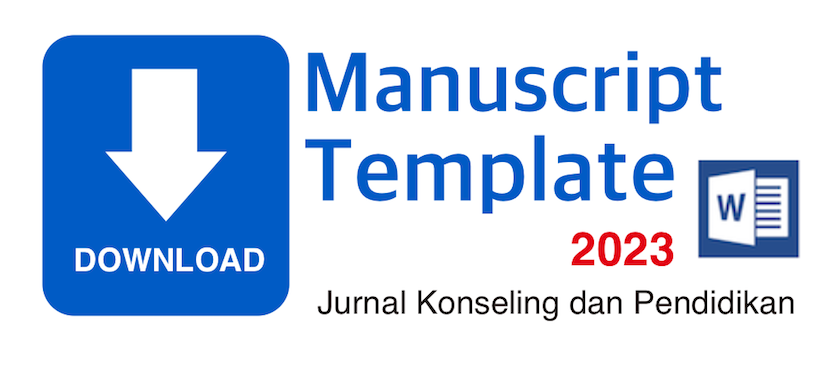Perilaku belajar dan self regulated learning siswa selama belajar dari rumah pada masa pandemi Covid-19
 ), Khairul Bariyyah(2), Augusto Da Costa(3), Husni Hanafi(4), Eny Tri Wahyuni(5),
), Khairul Bariyyah(2), Augusto Da Costa(3), Husni Hanafi(4), Eny Tri Wahyuni(5), (1) Universitas Negeri Malang
(2) Universitas Negeri Malang
(3) Instituto Superior Crista Timor Leste
(4) Universitas Negeri Malang
(5) Universitas Mochammad Sroedji Indonesia
 Corresponding Author
Corresponding Author
DOI : https://doi.org/10.29210/174100
Full Text:
 Language : en
Language : en
Abstract
References
Abidah, A., Hidaayatullaah, H. N., Simamora, R. M., Fehabutar, D., & Mutakinati, L. (2020). The impact of covid-19 to indonesian education and its relation to the philosophy of “merdeka belajar.” Studies in Philosophy of Science and Education, 1(1), 38–49.
Ainscough, L., Stewart, E., Colthorpe, K., & Zimbardi, K. (2018). Learning hindrances and self-regulated learning strategies reported by undergraduate students: identifying characteristics of resilient students. Studies in Higher Education, 43(12), 2194–2209.
Amin, M. S. (2018). Perbedaan struktur otak dan perilaku belajar antara pria dan wanita; Eksplanasi dalam sudut pandang neuro sains dan filsafat. Jurnal Filsafat Indonesia, 1(1), 38–43.
Atmoko, A. (2012). Bahan ajar matakuliah desain dan analisis data. Universitas Negeri Malang. UM-Malang.
Blume, F., Schmidt, A., Kramer, A. C., Schmiedek, F., & Neubauer, A. B. (2021). Homeschooling during the SARS-CoV-2 pandemic: The role of students’ trait self-regulation and task attributes of daily learning tasks for students’ daily self-regulation. Zeitschrift Für Erziehungswissenschaft, 24(2), 367–391.
Bragg, S., Renold, E., Ringrose, J., & Jackson, C. (2018). ‘More than boy, girl, male, female’: exploring young people’s views on gender diversity within and beyond school contexts. Sex Education, 18(4), 420–434.
Cicchinelli, A., Veas, E., Pardo, A., Pammer-Schindler, V., Fessl, A., Barreiros, C., & Lindstädt, S. (2018). Finding traces of self-regulated learning in activity streams. Proceedings of the 8th International Conference on Learning Analytics and Knowledge, 191–200.
Copeland, W. E., McGinnis, E., Bai, Y., Adams, Z., Nardone, H., Devadanam, V., Rettew, J., & Hudziak, J. J. (2021). Impact of COVID-19 pandemic on college student mental health and wellness. Journal of the American Academy of Child & Adolescent Psychiatry, 60(1), 134–141.
Costa, A., & Faria, L. (2018). Implicit theories of intelligence and academic achievement: A meta-analytic review. Frontiers in Psychology, 9, 829.
Firat, M., & Bozkurt, A. (2020). Variables affecting online learning readiness in an open and distance learning university. Educational Media International, 57(2), 112–127.
Gaeta, M. L., Gaeta, L., & Rodriguez, M. D. S. (2021). The impact of COVID-19 home confinement on mexican university students: emotions, coping strategies, and self-regulated learning. Frontiers in Psychology, 12, 1323.
Goss-Sampson, M. (2019). Statistical analysis in JASP: A guide for students. JASP.
Joosten, T., & Cusatis, R. (2020). Online learning readiness. American Journal of Distance Education, 34(3), 180–193.
Jun, S.-P., Yoo, H. S., & Choi, S. (2018). Ten years of research change using Google Trends: From the perspective of big data utilizations and applications. Technological Forecasting and Social Change, 130, 69–87.
Kemdikbud, R. I. (2020). Keputusan Bersama Menteri Pendidikan Dan Kebudayaan, Menteri Agama, Menteri Kesehatan, Dan Menteri Dalam Negeri Republik Indonesia. Dk, 53(9), 1689–1699.
Khasawneh, M. (2021). Self-Regulation among students with learning disabilities in English language and its relationship to some variables.
Kochkodan, J., Telem, D. A., & Ghaferi, A. A. (2018). Physiologic and psychological gender differences in bariatric surgery. Surgical Endoscopy, 32(3), 1382–1388.
Matcha, W., Gašević, D., & Pardo, A. (2019). A systematic review of empirical studies on learning analytics dashboards: A self-regulated learning perspective. IEEE Transactions on Learning Technologies, 13(2), 226–245.
Nugteren, M. L., Jarodzka, H., Kester, L., & Van Merriënboer, J. J. G. (2018). Self-regulation of secondary school students: self-assessments are inaccurate and insufficiently used for learning-task selection. Instructional Science, 46(3), 357–381.
Organization, W. H. (2020). WHO COVID-19 case definition. World Health Organization.
Ozan, C., & Kıncal, R. Y. (2018). The effects of formative assessment on academic achievement, attitudes toward the lesson, and self-regulation skills. Educational Sciences: Theory & Practice, 18(1).
Prasetyaningtyas, S. (2020). Pelaksanaan belajar dari rumah (BDR) secara online selama darurat COVID-19 di SMP N 1 Semin. Jurnal Karya Ilmiah Guru, 5(1), 86–94.
Putarek, V., & Pavlin-Bernardić, N. (2020). The role of self-efficacy for self-regulated learning, achievement goals, and engagement in academic cheating. European Journal of Psychology of Education, 35(3), 647–671.
Reimers, F., Schleicher, A., Saavedra, J., & Tuominen, S. (2020). Supporting the continuation of teaching and learning during the COVID-19 Pandemic. Oecd, 1(1), 1–38.
Robson, D. A., Allen, M. S., & Howard, S. J. (2020). Self-regulation in childhood as a predictor of future outcomes: A meta-analytic review. Psychological Bulletin, 146(4), 324.
Sahranavard, S., Miri, M. R., & Salehiniya, H. (2018). The relationship between self-regulation and educational performance in students. Journal of Education and Health Promotion, 7.
Solanki, S. M., & Xu, D. (2018). Looking beyond academic performance: The influence of instructor gender on student motivation in STEM fields. American Educational Research Journal, 55(4), 801–835.
Sun, Z., Xie, K., & Anderman, L. H. (2018). The role of self-regulated learning in students’ success in flipped undergraduate math courses. The Internet and Higher Education, 36, 41–53.
Tokan, M. K., & Imakulata, M. M. (2019). The effect of motivation and learning behaviour on student achievement. South African Journal of Education, 39(1).
Valenzuela, R., Codina, N., Castillo, I., & Pestana, J. V. (2020). Young university students’ academic self-regulation profiles and their associated procrastination: autonomous functioning requires self-regulated operations. Frontiers in Psychology, 11, 354.
Wei, H.-C., & Chou, C. (2020). Online learning performance and satisfaction: do perceptions and readiness matter? Distance Education, 41(1), 48–69.
Wolters, C. A., & Brady, A. C. (2021). College students’ time management: A self-regulated learning perspective. Educational Psychology Review, 33(4), 1319–1351.
Zimmerman, B. J., & Schunk, D. H. (2011). Handbook of self-regulation of learning and performance. Routledge/Taylor & Francis Group.
 Article Metrics
Article Metrics
 Abstract Views : 482 times
Abstract Views : 482 times
 PDF Downloaded : 112 times
PDF Downloaded : 112 times
Refbacks
- There are currently no refbacks.

This work is licensed under a Creative Commons Attribution 4.0 International License.




